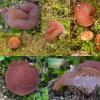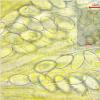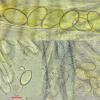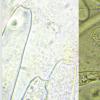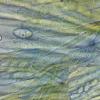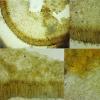
16-02-2026 21:25
 Andreas Millinger
Andreas Millinger
Good evening,failed to find an idea for this fungu

08-12-2025 17:37
 Lothar Krieglsteiner
Lothar Krieglsteiner
20.6.25, on branch of Abies infected and thickened

17-02-2026 17:26
 Nicolas Suberbielle
Nicolas Suberbielle
Bonjour à tous, Je recherche cette publication :

15-02-2026 04:32
One more specimen that is giving me some descent a

17-02-2026 13:41
Isabelle CharissouBonjour, est-ce que quelqu'un pourrait me fournir

16-02-2026 18:34
 Thierry Blondelle
Thierry Blondelle
Bonjour,La micro de cet anamorphe de Hercospora su

16-02-2026 17:14
Joanne TaylorLast week we published the following paper where w

16-02-2026 16:53
Isabelle CharissouBonjour, quelqu'un pourrait-il me transmettre un
Purpureodiscus - kreiselii?
Lothar Krieglsteiner,
17-12-2024 18:50
 from Portugal, on naked soil under Quercus suber above slate-stone.
from Portugal, on naked soil under Quercus suber above slate-stone. When collecting, I strongly thought of Purpureodiscus subisabellinus but hesitated mainly because of the different ecology (I know P.s. in connection with Fraxinus-wood from different findplaces).
Under the microscope it became clear very soon that the collection is not P. subisabellinus. The recherche now led to the paper of Hirsch and his description of P. kreiselii with quite similar characters. Unfortunately, I have no access to the descriptions of P. bananincola (likely not my fungus) and P. luteorosellus - as the latter is a LeGal-species likely from Southern Europe it also could perhaps be a possibility.
I noted clavate paraphyses that are often clustered, eguttulate spores of about 17-21/9,5-11,5 µm, asci with a diffuse iodine reaction at nearly entire length and pleurorhynchous ascus-bases. I also had thought of Pachyella because of the thick ascomata, but I found no gel and no oildrops in the spores (besides the drier ecology).
Who can tell me if P. kreiselii is correct or if P. luteorosellus is perhaps a better choice.
Yours, Lothar
Nicolas VAN VOOREN,
17-12-2024 18:57

Re : Purpureodiscus - kreiselii?
Interesting, this collection deserves a sequencing to evaluate if P. kreiselii is a good species or simply a form of P. subisabellinus. The other known Purpureodiscus are excluded because they are pantropical species.
Lothar Krieglsteiner,
17-12-2024 19:07

Re : Purpureodiscus - kreiselii?
thank you for your opinion. If you want me to send the specimen please tell me.
Yours, Lothar
Yours, Lothar

